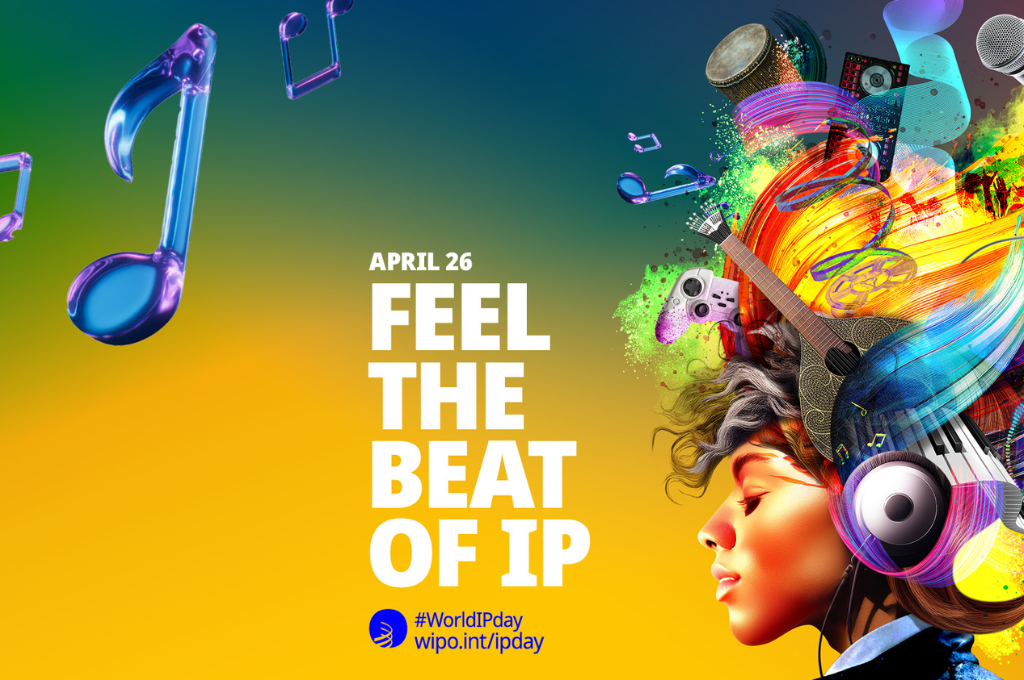Music is not only about notes, lyrics, and musical arrangements, but above all emotions that connect people and create their identity. There is no denying that it is also a multimillion-dollar business in which creators’ rights should be protected, among others, by the provisions of intellectual property law and copyright law. This year’s World Intellectual Property Day is celebrated with the theme: “IP and Music: Feel the Beat of IP”. So, let’s take a look at how artists can protect their work and achievements under applicable regulations.
The basis of music protection in Poland – copyright in the music industry
In Poland, musical works are protected primarily by the provisions of the Act of 4 February 1994 on copyright and related rights.
In the music industry, works can include, for example, lyrics, sound compositions (music), songs (music with lyrics), sound recordings, videos, as well as artistic performances (e.g. covers).
Copyrights can be divided into author’s moral and economic rights. Moral rights are the creator’s eternal rights and arise upon the creation of the work. This means that no additional formalities need to be completed for moral rights to be established.
Moral rights include, among others, the right of the author to include their name, surname and/or pseudonym in the designation of the work, the right to preserve the integrity of the content and form of the work and the right to make the work available to the public for the first time. Since in copyright disputes it is possible to question the authorship, so it is worth accumulating the evidence confirming that you are the creator. Such conflicts can occur even years after the creation of the work (e.g. in the case of musical groups and bands).
A well-known copyright dispute in the music industry is the case of the British artist FKA twigs, who once shared a choreography plan on social media. This was later used by a large brand without her consent. The video she had shared became a proof that her choreography was the original.
Author’s economic rights, in turn, are transferable (they can be transferred to other persons or entities, e.g. by reselling). Also, they are limited in time (they last up to 70 years after the creator’s death, then the work enters the public domain). Economic rights include, among others: the right to use the work, the creator’s right to dispose of the work and the right to remuneration for the use of the work. Author’s economic rights may be held not only by the creator, but also, for example, a record company, streaming media service, producer, organization for collective copyright management or performer. Despite his worldwide fame, Prince fought for the rights to his musical work for a long time. In the 1990s, he started to appear with the word “SLAVE” written on his face and changed his name to a symbol to protest against the record company that had the rights to his recordings. Years later, he regained control over his work, but it had cost him a lot. Today, his example serves as a cautionary tale about the importance of well-written contracts.
Below, you will learn how to manage your copyrights.
Branding in music – trademarks for artists and music bands
On the music market, it is not only artistic works that have a specific value. A band name, first and last name or nickname, logo or a characteristic slogan may also have a real market value. Protecting them by registering trademarks gives the owner the exclusive right to their use for commercial and promotional purposes. Strong brands can generate huge profits, e.g. by selling posters, accessories or clothes with the singer’s or band’s logo.
Beyonce registered her daughter’s Blue Ivy Carter name as a trademark for fear that someone else would want to use it commercially. By registering the mark, she protected not only the name, but also a potential brand in the future.
Registering a trademark with the Polish Patent Office allows the owner to exclusively use the trademark in the territory of Poland for the entire 10-year protection period, with the possibility of its extension for subsequent decades. Artists building their careers also abroad need to protect their marks in other countries or as part of the international registration procedure. With such protection, they can have an impact on the development of the brand and prevent infringements, e.g. the sale of counterfeits or use without the owner’s consent or against their intentions.
One artist who has decided to take advantage of this opportunity is the Polish rapper Young Leosia, who registered her pseudonym as a trademark. As a result, she can not only control its commercial use but also take action against counterfeits or unauthorized events.
What about sound trademarks? These also occur. If the sound or melody is related to the brand and identified with it by the audience, it can be registered as a trademark. Examples include the characteristic “ta-dum” sound effect of Netflix, MGM lion roar, or the deer’s roar for Jägermeister.
Is music good? So should be cooperation.
At the core of fruitful and good cooperation between the artist, record label, producer and other entities is a clear desire for business cooperation. And such desire is mostly expressed in license and distribution agreements. And to draft them, it is worth seeking legal assistance to ensure that the creator can impact their work and the way it is used. The principles of remuneration and distribution of profits, as well as the manner of use or the possibility to modify the work should be properly defined.
Billie Eilish and her brother Finneas have always made music in their home recording studio. Although they signed a contract with a large label, they made sure to keep control over key decisions regarding the use of their works in commercials or films.
License agreements specify who, where, to what extent and how can use the work, e.g. by publishing it in digital services and using it in commercials or on physical media devices. Such documents should also specify a settlement method or a type of (exclusive or non-exclusive) license to be granted.
In turn, distribution agreements specify the principles of dissemination of the work, including, among others: distribution of profits, duration of cooperation and options to control the use of recordings. They should also precisely determine where the work will be made available to the audience (e.g. physical or digital distribution).
A Polish indie rock band signed a contract with a digital distributor to stream their album in Europe and Asia. After a year, the members of the band discovered that their work was used in a commercial without their knowledge. Due to the lack of precise provisions in the agreement they suffered financial losses, and their reputation was negatively impacted.
When drafting such legal documents, it is worth using assistance of an experienced attorney. He or she will make sure that obligations specified in a contract are clear and comprehensible to all the parties, which will eliminate misunderstandings during cooperation.
The future of music? Only with IP!
The development of technology has changed completely the way we create, listen to, experience, and share music. With new opportunities, new threats have emerged, such as copying, generative AI, voice deepfakes and online piracy.
In 2023, a song featuring AI-generated voices of Drake and The Weeknd reached millions of views on TikTok. But the problem is that neither of the artists contributed to the recording. Following protests, the services removed the song, and the case sparked a global debate about the rights to one’s image and voice.
Due to the above threats, artists and companies from the music industry should strengthen their relations with intellectual property experts. With the experts’ help, they can not only effectively protect their works, but also knowingly manage their music and build lasting, valuable artistic and business brands.
With well-written contracts and trademark registration, creators gain tools to influence the way their music is presented online. Its use in streaming services, social networks or computer games can be the source of huge profits, but without a portfolio of structured rights, the income can be earned by someone else.
Investment in IP protection provides creators with independence, income, and security. As part of a long-term strategy, it allows for informed licensing, establishing partnerships with brands, or controlling remixes and covers. Protect your rights as they work for your success around the clock!



